Climate Thursdays are held in collaboration with leading researchers from the University of Southern Denmark and several other Danish universities, experts from the Danish Council on Climate Change, Klimatorium and the Danish Meteorological Institute, as well as companies, think tanks, institutions and organisations.
The high profile symposia series focus on the state of our climate and on the technical and behavioural solutions and actions taken to meet the current climate challenges.
Climate Thursdays kicks off on 7 September 2023 and continue the following Thursdays until mid-November.
Below you can see the dates, themes and speakers of the individual seminars. All the webinars will be recorded and placed under the tab of the respective date immediately after each seminar. We reserve the right to make any alterations in the programme.
We look forward to seeing you at the Climate Thursdays.
Video of today's webinar
Sebastian Mernild's presentation about IPCC - latest report and updates
Peter Ditlevsen's presentation about climate extremes and tipping points in the Earth system
Peter Langen's presentation about Basic mechanisms
Introduction & status
08.00 - 08.10
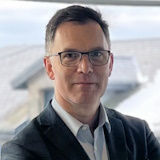
Peter Møllgaard is Dean at the Faculty of Business and Social Sciences, the University of Southern Denmark and chair of the Danish Council of Climate Change.
He holds a MSc degree in economics from the University of Copenhagen as well as MSc and PhD degrees from the European University Institute in Florence. He has previously worked as professor, head of department and dean of research at Copenhagen Business School for 22 years. Before this he was assistant professor at the University of Aarhus, and he also has experience from the Danish Ministry of Finance and the Ministry of Economics and Business Affairs. He is a member of several international advisory committees and boards, the Globally Responsible Leadership Initiative (The GRLI) and Association to Advance Collegiate Schools of Business (AACSB). His research focuses on the application of industrial organization on competition policy and regulation, often to energy markets.
Peter will give an introduction to the symposia series idea and plan together with Henrik Wenzel and Sebastian Mernild.
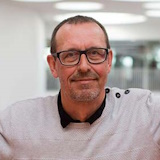
Henrik Wenzel is professor at the Center for Life Cycle Engineering, Department of Green Technology at University of Southern Denmark.
His research focuses on environmental system analysis and system design aiming at optimizing large infrastructure systems such as energy systems and waste management systems in a holistic perspective. He has studied a large variety of alternative fuels for future transport including both biofuels and so-called electrofuels made from CO2 and hydrogen and has worked in close collaboration with key partners in aviation and shipping.
08.10 - 08.20
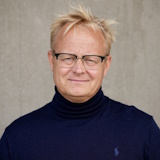
Sebastian Mernild, Professor and Head of SDU Climate Cluster.
Sebastian Mernild, Professor in Climate Change and Glaciology at SDU, PhD and Dr. Scient. Author on the IPCC AR6 and AR5 Working Group 1 Climate Report. He has worked in the US for seven years at the International Arctic Research Center, University of Alaska Fairbanks, at Los Alamos National Laboratory in New Mexico and three years as senior research scientist/research leader at Centro de Estudios Científicos in Chile. Further, he has worked in Norway as full professor in Climate Change and Glaciology and as Director of the Nansen Center in Bergen.
Sebastian will give a lecture about IPCC - latest report and updates
08.20 - 08.50
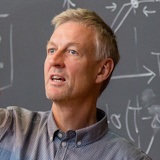
Peter Ditlevsen, Professor, Niels Bohr Institute, University of Copenhagen
He is MSc in theoretical physics from the University of Copenhagen, PhD in surface science from DTU and DrSc in Physics of Climate from university of Copenhagen. He's research is focused on Turbulence, Chaos, Dynamical systems, Climate and Meteorology. He has been working on analysis of paleoclimatic proxies, especially from ice cores. He presently works on tipping points in the climate and is heading the European project TiPES (https://www.tipes.dk/) (Tipping Points in the Earth System) and the ITN CriticalEarth (https://www.criticalearth.eu/).
Peter will give a lecture on climate extremes and tipping points.
08.50 - 09.20
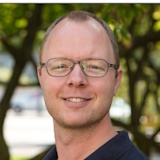
Peter Langen, Professor, AU.
Peter Langen is a professor of climate modeling at the Department of Environmental Science, Aarhus University, and director of the Aarhus University Interdisciplinary Centre for Climate Change (iClimate). He is an expert on climate models and applying them to questions relating to climate change and feedbacks in the Arctic and globally. Research topics include Arctic amplification and the coupling between Arctic climate and lower latitudes, interactions between the atmosphere, ocean and ice as well as the build-up and melting of ice sheets. Peter has worked at the University of Copenhagen, Stockholm University, and the Danish Meteorological Institute where he was head of climate research before coming to Aarhus University.
Peter will give a lecture on climate change: Basic mechanisms and cause-effect relationships.
Video of today's webinar
Andreas Ahlstrøm's presentation about monitoring the Greenland icesheet
Cintia Organo Quintana's presentation about scaling up nature based solutions for climate change adaptation and mitigation
Impacts on glaciers and sea level and the aquatic nature-based solutions
08.00 - 08.30
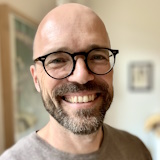
Andreas Ahlstrøm, Chief Research Consultant, GEUS
Andreas Ahlstrøm is a chief research consultant and deputy head of department in Glaciology and Climate at the Geological Survey of Denmark and Greenland, leader of the Greenland Climate Network and key architect behind the Danish-Greenlandic effort to monitor the contribution of the Greenland ice sheet to sea level change. Andreas holds a PhD and MSc in glaciology & climate and an executive master’s in public governance. He is an expert on the observation and modelling of the mass balance of the Greenland ice sheet and serves as an expert advisor to the Ministry of Climate, Energy and Utilities in briefings for the UNFCCC, is on the AMAP Climate Expert Group under the Arctic Council and is the current Chair of the scientific panel of the Danish National Centre for Climate Research.
Andreas will give a lecture on impacts on glaciers and sea level.
08.30 - 09.00
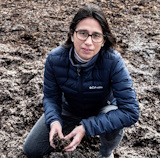 Cintia O. Quintana, Marine Ecologist, expert in coastal restoration, biodiversity and biogeochemistry.
Cintia O. Quintana, Marine Ecologist, expert in coastal restoration, biodiversity and biogeochemistry.
She works on natural and restored coastal and marine ecosystems investigating carbon cycling and greenhouse gases balance as well as on assessments of flora and fauna communities. Cintia uses empirical data on ecosystem functions to bridge potential ecosystem services and relevance to society. Additionally, Cintia uses her research results in developing transdisciplinary work on nature-based solutions together with various stakeholders and authorities.
Cintia will give a lecture on scaling up aquatic nature-based solutions for climate adaptation and mitigation
Video of today's webinar
Jørgen E. Olesen's presentation about agricultural impacts on climate change
Impacts on agriculture and food systems and the marine ecosystem
08.00 - 08.30
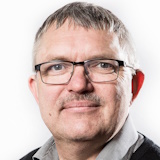
Jørgen E. Olesen, Professor, AU.
Jørgen E. Olesen is professor in climate and agriculture at Aarhus University. He is also head of department at Department of Agroecology, Aarhus University. He is recognised as a world leading expert on climate change impacts on agriculture and on greenhouse gases from agriculture and how they may be mitigated. He has contributed as a lead author to the IPCC WG2 and to several governmental commissions and councils, including the Commission on Climate Change Policy and the Ethical Council. He is award highly cited researcher by Clarivate.
Jørgen will give a lecture on agriculture and food systems.
08.30 - 09.00
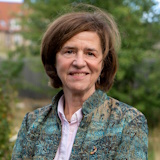
Katherine Richardson is a professor in biological oceanography at the University of Copenhagen, leader of the Sustainability Science Centre (www.sustainability.ku.dk), a principle investigator in the Center for Macroecology, Evolution and Climate (www.macroecology.ku.dk), and Leader of theQueen Margrethe’s and Vigdís Finnbogadóttir´s Interdisciplinary Research Centre on Ocean, Climate, and Society (www.ROCS.ku.dk). Her research focuses on the importance of biological processes in the ocean for the uptake of CO2 from the atmosphere and how ocean biology, including diversity, contributes to ocean function in the Earth System. Katherine is also a core developer of the Planetary Boundaries framework that attempts to identify a safe operating space for humanity in its impact on global resources. KR holds a Bachelor’s Degree from Harvard College (1976), a PhD from the University of Wales (awarded while on a Marshall Fellowship) and a D.Sc. from the University of Copenhagen.
Katherine will give a lecture on planetary boundaries.
Video of today's webinar
Please note that the video does not include a lecture from Eigil Kaas due to an excuse.
Lasse Skafte Vestergaard's presentation The impact of climate change on human health, in particpular the risk of emerging infections
Basic mechanisms and cause-effect relations
08.00 - 08.30
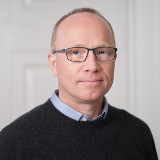
Lasse Skafte Vestergaard, MD PhD, is a senior medical officer (overlæge) at Statens Serum Institut (SSI), Department of Infectious Disease Epidemiology and Prevention, where he leads the team for emerging infectious diseases within the national infectious disease preparedness programme.
He is a specialist in public health medicine, mainly focusing on communicable disease control and global health, with 25 years of work experience in control of malaria, other vectorborne and parasitic disease. He completed his PhD in malaria epidemiology from University of Copenhagen in 2004, based on field work in Tanzania, and from 2008 to 2015 he worked as a Medical Officer for the World Health Organization (WHO), based in Vanuatu and the Philippines. He regularly participates in international consultancies in malaria control and elimination in the Asia Pacific Region, and is appointed as malaria expert member of the Technical Review Panel (TRP) of the Global Fund to Fight Aids, Tuberculosis and Malaria, Geneva.
Lasse will give a lecture on the impact of climate change on human health, in particular the risk of emerging infections.
08.30 - 09.00
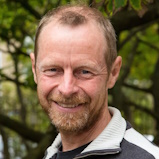
Eigil Kaas is Professor at the Niels Bohr Institute at University of Copenhagen, and researcher at the National Centre for Climate Research (NCKF) at the Danish Meteorological Institute.
Throughout many years, Eigil has trained Danish meteorologists, geophysicists and climate physicists to be equipped to understand meteorological and climate physical processes and phenomena, including, of course, the physics behind natural climate variability and the anthropogenic climate changes we are facing now.
His scientific focus areas are climate research with focus on climate dynamics/physics, meteorology and numerical methods used in atmospheric models for climate and numerical weather prediction (NWP). Recently also nowcasting, usage of crowd sourced data in NWP and AI methods have been focal areas. A short CV can be found here.
Eigil will give the lecture: The state of the climate on Earth
Video of today's webinar
Henrik Wenzel's presentation Climate change and the tragedy of the commons
Frederik Silbye's presentation CO2 taxes as the key market regulative instrument
Nina Skaarup's presentation Geological CO2 storage
Economic aspects and framework conditions
08.00 - 08.30

Henrik Wenzel, Professor at Life Cycle Engineering, SDU
Henrik Wenzel is professor at the Center for Life Cycle Engineering, Department of Green Technology at University of Southern Denmark. His research focuses on environmental system analysis and system design aiming at optimizing large infrastructure systems such as energy systems and waste management systems in a holistic perspective. He has studied a large variety of alternative fuels for future transport including both biofuels and so-called electrofuels made from CO2 and hydrogen and has worked in close collaboration with key partners in aviation and shipping.
Henrik will give a lecture on climate change and the tragedy of the commons.
08.30 - 09.00
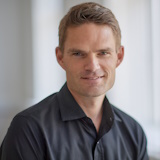
Frederik Silbye, Head of Analysis at the secretariat of the Danish Council on Climate Change, PhD and M.Sc. in Economics from University of Copenhagen and Johns Hopkins University, Baltimore, Maryland.
He has been with the Council since it was founded in 2015 and has worked on almost every aspect of Danish and international climate policy. Previously, he has worked several years in the energy sector at DONG Energy (now Ørsted) and in management consulting at Rambøll.
Frederik will give a lecture on CO2 taxes as the key market regulative instrument.
09.00 - 09.30
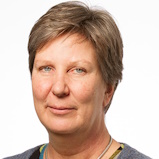
Nina Skaarup, State Geologist, Head of Department for Geophysics and Sedimentary Basins at the Geological Survey of Denmark and Greenland (GEUS).
Nina Skaarup, Ph.D. in Geophysics, leads the CCS (Carbon Capture and Storage) work at GEUS. GEUS was appointed by the Ministry of Climate, Energy and Utilities to mature possible storage sites for CO2 onshore and nearshore Denmark, and GEUS has together with the Ministry and local municipalities selected 8 sites for further investigation in this first round for CCS sites. The investigation is primarily seismic data acquisition to make sure the storage structure is reliable and safe.
GEUS is an independent research and advisory Institution within the Ministry of Climate, Energy and Utilities, and are the national geological data centre and undertakes research and consultant work related to water resources, energy, climate, nature, and minerals.
Nina will give a lecture on CO2 underground storage.
Video of today's webinar
Niels Buus Kristensen's presentation Road transport and aviation
Henrik Wenzel's presentation The carbon balance of the techno-sphere
Road transport and aviation, carbon capture and economic aspects
08.00 - 08.30
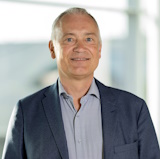
Niels Buus Kristensen, Senior Researcher, Institute for Transport Economics, Oslo
He holds a PhD from the University of Copenhagen and has through his career worked both in the academic and consultancy sector. His main field of expertise is transport economics and policy and with particular focus on strategic climate change abatement policy. He has participated as appointed expert in several government commissions, boards and advisory councils on transportation topics as well climate change, both in Denmark, Norway and for the European Commission. He is also the expert on transportation in the Danish Council of Climate Change since 2015.
Niels will give a lecture on road transport and aviation.
08.30 - 09.00

Henrik Wenzel, Professor at Life Cycle Engineering, The Faculty of Engineering.
Henrik Wenzel is professor at the Center for Life Cycle Engineering, Department of Green Technology at University of Southern Denmark. His research focuses on environmental system analysis and system design aiming at optimizing large infrastructure systems such as energy systems and waste management systems in a holistic perspective. He has studied a large variety of alternative fuels for future transport including both biofuels and so-called electrofuels made from CO2 and hydrogen and has worked in close collaboration with key partners in aviation and shipping.
Henrik will give a lecture on the carbon balance of techno-sphere.
Video of today's webinar
Jørgen E. Olesen's presentation GHG emissions from agriculture and food
Jørgen Bo Larsen's presentation Climate change and forest
Jørgen Bo Larsen's literature Forest based climate change mitigation and adaptation in Europe
Maria Strandesen's presentation Maersk's decarbonization journey
Agriculture, forestry and shipping
08.00 - 08.30

Jørgen E. Olesen, Professor, AU.
Jørgen E. Olesen is professor in climate and agriculture at Aarhus University. He is also head of department at Department of Agroecology, Aarhus University. He is recognised as a world leading expert on climate change impacts on agriculture and on greenhouse gases from agriculture and how they may be mitigated. He has contributed as a lead author to the IPCC WG2 and to several governmental commissions and councils, including the Commission on Climate Change Policy and the Ethical Council. He is award highly cited researcher by Clarivate.
Jørgen will give a lecture on agriculture.
08.30 - 09.00
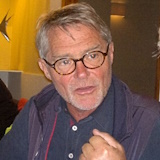
Jørgen Bo Larsen, professor emeritus at University of Copenhagen and professor at Nanjing Forestry University in China.
His research covers silviculture, genetics and forest tree breeding, gene conservation and gene ecology, forest ecology, eco-physiology, provenance research and forest protection with the objective of understanding processes and functions of forest ecosystems to facilitate the development of sustainable forest management approaches. He has been instrumental in developing and applying close-to-nature forest management in Denmark.
He has served on the Board of several international forest research organizations including European Forest Institute (EFI, Board chair), International Forestry Research Center (CIFOR, Board member) and World Agroforestry Center (ICRAF, Board member).
Jørgen will give a lecture on forestry.
09.00 - 09.30
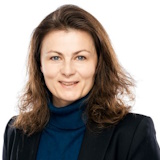
Maria Strandesen is Director and Head of Future Fuels for the Maersk Decarbonization group at A.P. Moller - Maersk. In this role, she leads the team that is responsible for identifying and evaluating different carbon neutral fuels suitable for Maersk s fleet of about 750 vessels. In other words, her team covers the technical subject matter experts that recommends which future fuels Maersk should bet on when decarbonizing their fleet.
Maria will give a lecture on shipping.
Video of today's webinar
Marie Münster's presentation PtX as part of integrated energy systems
PtX and other technology advances
08.00 - 08.30
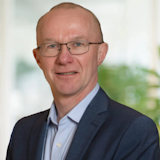
Martin Nielsen is Plant Manager, site Vordingborg at Arcadia eFuels. He is responsible for building up the organization for the PtX (mainly eKero).
Martin will give a lecture on sustainable aviation fuel.
08.30 - 09.00
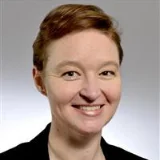
Marie Münster is Professor in Energy System Analysis at the Technical University of Denmark. She holds a M.Sc. in Energy Planning and a PhD in Energy Modeling. Marie Münster has extensive experience withn the field of energy system modeling with focus on integrated energy systems and smart sector coupling analyzing technologies producing power, heat, gases and transport fuels (including PtX).
She is a member of the Danish Climate Council, the Climate Advisory Board of Ecole Polytechnique, the Advisory Board of the ElForsk and the referee panel of the Maritime DTU Orients research foundations.
She has been project leader and WP lead on several Danish and international research projects. She mainly contributes with teaching on the DTU Master in Sustainable Energy.
Marie will give a lecture on PtX as part of integrated energy systems.
09.00 - 09.30
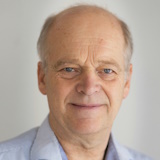
Henrik Stiesdal is the founder and CTO of Stiesdal.
Henrik Stiesdal is one of the pioneers of the modern wind industry, building his first wind turbine in 1976. From 1979 onwards he worked with Vestas, Bonus Energy and Siemens, retiring in 2014. He was responsible for the turbine design and supply for the world’s first offshore wind farm in 1991 and for the world’s first floating offshore wind turbine in 2009, and has been awarded more than 1000 patents. Stiesdal is currently developing technologies within floating offshore wind, energy storage, hydrogen, and carbon-negative fuels. Henrik Stiesdal is associate professor at DTU Wind Energy and adjunct research professor at the University of Maine.
Henrik will give a lecture on new promising technologies.
Video of today's webinar
Henrik Wenzel's presentation Waste management and a circular plastic system
08.00 - 08.30

Henrik Wenzel, Professor at Life Cycle Engineering, SDU
Henrik Wenzel is professor at the Center for Life Cycle Engineering, Department of Green Technology at University of Southern Denmark. His research focuses on environmental system analysis and system design aiming at optimizing large infrastructure systems such as energy systems and waste management systems in a holistic perspective. He has studied a large variety of alternative fuels for future transport including both biofuels and so-called electrofuels made from CO2 and hydrogen and has worked in close collaboration with key partners in aviation and shipping.
Henrik will give a lecture on waste management and a circular plastic system.
08.30 - 09.00
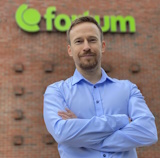
Tony Rehn is Program Director at Fortum Recycling & Waste, leading the Carbon2x programme that aims to produce new materials from the CO2 emissions of waste incineration.
As part of this role, Tony shapes the strategy and direction of the programme that targets to decarbonize Fortum’s new and existing Waste-to-Energy units. Before joining Fortum/ Carbon2X programme, Tony has worked in several management positions within the field of Logistics and Supply Chain Management in different industrial sectors. Tony is an engineer by education and holds a degree in Supply Chain Management. He specialises in Leadership, Business Development and is driven by an entrepreneurial mindset.
Tony will give a lecture on strategies and opportunities for future waste management and PtX plastics.
Video of today's panel debate
Panel debate - status and solutions on climate policy in global, national and COP28 perspectives
13.30 - 15.00
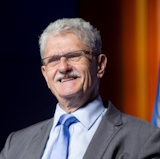
Mogens Lykketoft. Social Democratic MP 1981-2019, over the year among other positions Minister for Finance and Foreign Affairs, Party Leader and Speaker of Parliament.
President of 70th session of the United Nations General Assembly 2015-2016, when the SDGs were approved, and we had the Paris Climate Agreement.
Present Chairman of the Board of Energinet (the Danish National Transmission Company for Electricity and Gas), which is main investor in the network that facilitates green transition.
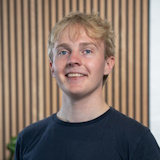
Gorm Nissen, climate activist in the Green Youth Movement
Gorm has been active in the Green Youth Movement for a number of years, where he e.g. has been a central person in the work with international climate policies and COP’s. Furthermore, he has worked in the movement’s growth-critical group. Alongside the Green Youth Movement, he works as a project employee at the Frej Think Tank, where he among other things has worked with genetic engineering, distribution of legumes and young farmers’ engagement in the green transition.
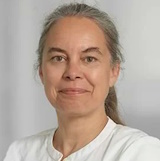
Anne Højer Simonsen, Senior Director, Climate, Green Transition and Energy at Danish Industry
She has previously worked as Senior Director at the Danish Meteorological Institute. Before this she has i.a. worked as Head of Department, Department of Danish Ministry of Climate, Energy and Buildings and as Senior Director at the Danish Energy Agency.

Maria Strandesen, Director and Head of Future Fuels for the Maersk Decarbonization group at A.P. Moller - Maersk.
In this role, she leads the team that is responsible for identifying and evaluating different carbon neutral fuels suitable for Maersk s fleet of about 750 vessels. In other words, her team covers the technical subject matter experts that recommends which future fuels Maersk should bet on when decarbonizing their fleet.
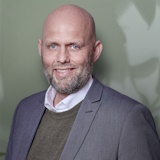
Christian Ibsen is the CEO of CONCITO. He is MSc in Economics with a special focus on environmental economics. He worked for many in the Danish Ministry for the Environment and the Danish Ministry for Climate and Energy with a focus on the Danish and international climate agenda.
In the years leading up to 2009, Christian Ibsen was responsible for coordinating Danish positions on the substantive elements of the climate agenda of COP15 in Copenhagen. In 2010-2014 just before joining CONCITO, Christian Ibsen was Director of Climate Planning in the Danish Municipality Fredensborg from 2010-2014. Part of his responsibilities included issues related to climate adaptation, urban development and the implementation of a joint climate and energy vision for the Greater Copenhagen area.
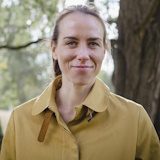
Helene Hagel is the Head of Climate and Environmental Policy at Greenpeace in Denmark. She develops and executes campaigns within various environmental and climate issues and tries to move especially the fossil fuel policy forward to be science based. She has previously been the green advisor to Alternativet at the Danish parliament, been at UNFCCC and worked at various media outlets.

Peter Møllgaard is Dean at the Faculty of Business and Social Sciences, the University of Southern Denmark and chair of the Danish Council of Climate Change.
He holds a MSc degree in economics from the University of Copenhagen as well as MSc and PhD degrees from the European University Institute in Florence. He has previously worked as professor, head of department and dean of research at Copenhagen Business School for 22 years. Before this he was assistant professor at the University of Aarhus, and he also has experience from the Danish Ministry of Finance and the Ministry of Economics and Business Affairs. He is a member of several international advisory committees and boards, the Globally Responsible Leadership Initiative (The GRLI) and Association to Advance Collegiate Schools of Business (AACSB). His research focuses on the application of industrial organization on competition policy and regulation, often to energy markets.

Henrik Wenzel is professor at the Center for Life Cycle Engineering, Department of Green Technology at University of Southern Denmark.
His research focuses on environmental system analysis and system design aiming at optimizing large infrastructure systems such as energy systems and waste management systems in a holistic perspective. He has studied a large variety of alternative fuels for future transport including both biofuels and so-called electrofuels made from CO2 and hydrogen and has worked in close collaboration with key partners in aviation and shipping.

Sebastian Mernild, Professor and Head of SDU Climate Cluster.
Sebastian Mernild, Professor in Climate Change and Glaciology at SDU, PhD and Dr. Scient. Author on the IPCC AR6 and AR5 Working Group 1 Climate Report. He has worked in the US for seven years at the International Arctic Research Center, University of Alaska Fairbanks, at Los Alamos National Laboratory in New Mexico and three years as senior research scientist/research leader at Centro de Estudios Científicos in Chile. Further, he has worked in Norway as full professor in Climate Change and Glaciology and as Director of the Nansen Center in Bergen.
More participants in the panel debate may be added later.